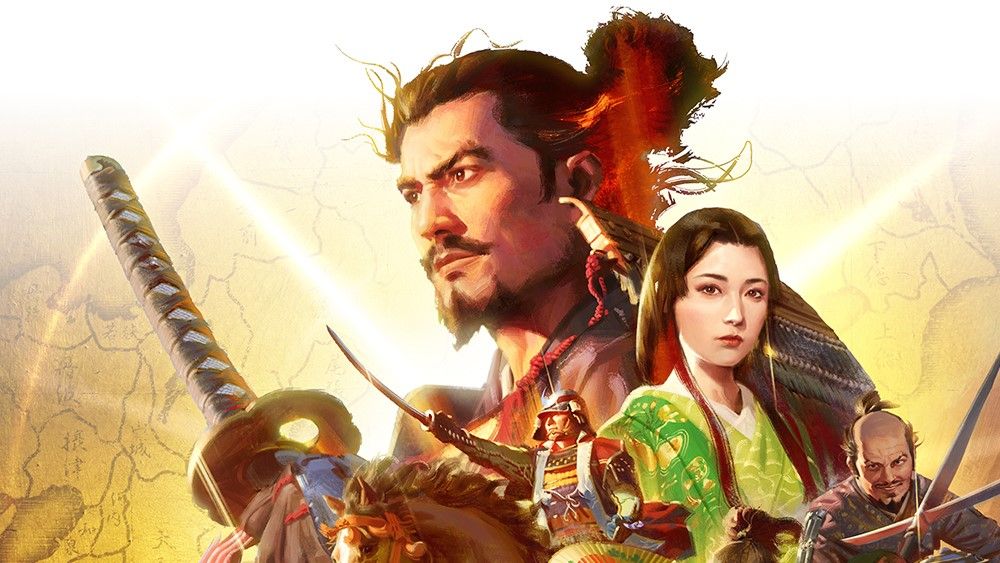
Understanding Nobunaga’s Ambition: Awakening Complete Edition
Nobunaga’s Ambition: Awakening Complete Edition offers a unique blend of historical depth and strategic gameplay. This game allows players to immerse themselves in the complexities of feudal Japan, particularly during the Sengoku period. Players take on the role of a daimyō, a powerful feudal lord, with the goal of unifying Japan. Whether you choose to play as the iconic Oda clan leader, Nobunaga, or another historical figure, the game provides a rich narrative that challenges your strategic thinking.
The game features a variety of mechanics, including resource management, diplomacy, and warfare. Players must navigate through intricate political systems, manage their territories, and engage in battles that reflect the tumultuous history of the era. The game also includes cutscenes that bring famous battles to life, adding an element of drama and excitement to the gameplay.
However, the experience is not without its challenges. The user interface can be overwhelming, with menus that are not always intuitive. This can make the learning curve quite steep for new players. Despite this, many find the game's complexity rewarding, as it offers a deep and engaging experience for those willing to invest time in mastering its systems.
Starting Your Journey
When beginning the game, players select a date ranging from 1543 to 1614 and choose a clan to represent. Each clan starts with different setups, including alliances, provinces, and officers. This diversity allows for varied gameplay experiences, as each clan has unique strengths and weaknesses.
The tutorial is brief and covers the basics, but it may not be sufficient for higher difficulty levels. It is advisable to start on an easier setting to get a feel for the game before tackling more challenging scenarios. Players will need to explore their territories, manage resources, and develop their castles to build a strong foundation for their campaign.
Managing Your Officers
One of the key aspects of the game is managing your officers. These individuals play a crucial role in your strategy, as they can make decisions on your behalf within their areas of responsibility. As you progress, you will recruit more officers, each with unique traits and skills that can influence your success.
Officers can recommend actions and suggest strategies for military or covert operations. However, it is important to maintain their loyalty, as they may act independently if their loyalty wanes. The game encourages players to delegate tasks effectively, allowing for a balance between micro-management and macro-level strategy.
Council Management and Policies
Consulting your council is essential for running an effective kingdom. Policies are a vital component of the game, enabling players to unlock new features, improve delegation, and strengthen their forces. However, some policies can be costly, so it is wise to wait until you have excess gold before investing in them.
Accolades, gifts, and marriages can enhance your officers' abilities and loyalty, further solidifying your position as a formidable daimyō. As your lands expand, you will also need to set up new provinces, delegating responsibilities to regents who can manage these regions autonomously.
Diplomacy and Alliances
Diplomacy plays a significant role in the game, allowing players to build relationships with neighboring clans. By sending high-ranking officers as diplomats, you can accumulate goodwill and form alliances. This can lead to mutual support in combat, peace negotiations, and even marriages that strengthen your position.
Alliances can be beneficial, but they require careful consideration. Some allies may become obstacles to your expansion, while others might offer valuable support. It is crucial to evaluate which alliances align with your goals and how they can impact your overall strategy.
Engaging in Combat
Combat is an inevitable part of the game, and players will eventually face enemies in battles. The game offers various strategies for approaching conflicts, including direct assaults and covert operations to weaken enemy forces. Players can choose routes and engage in battles that reflect historical events, providing a rich narrative experience.
Siege encounters are particularly challenging, requiring careful planning and execution. If not managed properly, these encounters can be brutal, especially in the early stages of the game. Winning battles can earn authority, which can lead to new alliances and territorial gains.
User Experience and Interface
While the game itself is visually appealing, the user interface presents some challenges. The menus can be cluttered, and navigation can be confusing, making the game frustrating for some players. The UI clarity and visibility are areas that could benefit from improvements, as they significantly impact the overall experience.
Despite these issues, the game offers a variety of features that enhance the gameplay, such as mouse controls that can make navigating menus and directing troops more efficient. For players who prefer a more streamlined experience, these options can be invaluable.
Final Thoughts
Overall, Nobunaga’s Ambition: Awakening is a game that offers a deep and immersive experience for those willing to invest time in mastering its complex systems. While it may present challenges, the rewards of successfully unifying Japan are substantial. The game's rich historical context and strategic depth make it a compelling choice for fans of grand strategy games.
If you enjoy the challenge of managing a vast empire, engaging in intricate diplomacy, and experiencing the thrill of battle, then Nobunaga’s Ambition: Awakening is definitely worth considering. However, if you prefer a more straightforward experience, this game may not be the best fit for you.
Posting Komentar untuk "I Spent Hours Learning Nobunaga’s Ambition: Awakening Just to Win in a Minute"